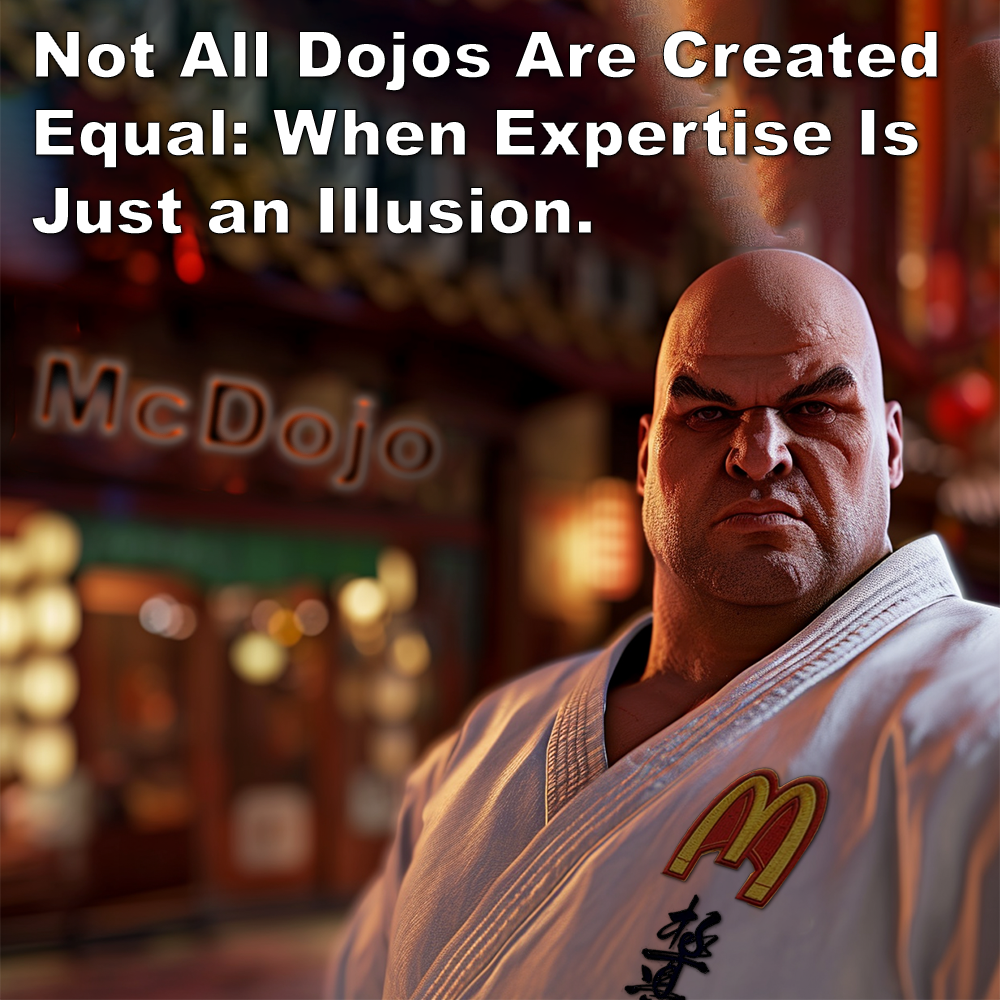
(Approx 2 minute 30 second read)
Imagine the fear. You’ve been training at your dojo for a while, growing confident in your abilities and trusting in your sensei. But slowly, a gnawing doubt creeps in – a feeling deep in your gut that something isn’t right.
.
You start to notice things you didn’t before. Techniques feel off, explanations are vague, and the atmosphere seems different. Over time, you begin to question whether your sensei is the expert you thought he was. Slowly, you realize you’re not learning self-defense at all.
.
This can be heartbreaking for students, especially beginners, who place and enormous amount trust in their instructors, relying on the information and advertising a school promotes. But when that trust is misplaced, it’s seriously disappointing.
.
By the time students recognize something is wrong, they’ve often formed bonds of loyalty and friendship. They’ve spent years learning techniques, earned belt grades, and built emotional ties.
.
Where am I going with this? Recently, I viewed several videos sent to me by a concerned student. What I saw was awful. A 3rd-dan instructor, someone I knew of but had never met, displayed appalling techniques. It was textbook McDojo behavior – poor quality instruction sold as the “ultimate” karate.
.
Sure, his dojo had the trappings of legitimacy: a Budo creed, syllabus, and photos of masters all hanging on the walls. But his techniques looked like someone with six months of training, not the years he claimed. It was painful to watch.
.
I chose not to share the videos because the real victims – his students – would also be ridiculed. It’s not their fault. They’ve been deceived and don’t know any better.
.
The instruction this McDojo provided wasn’t just substandard – it was negligent. What worries me most is how easily the public, and even local authorities, are deceived by schools like this. The instructor is lying to his students, and in doing so, he’s putting them at risk by teaching ineffective techniques and giving them false confidence.
.
As someone who’s been in the martial arts for decades, I’ve encountered fraudulent credentials more times than I care to remember – questionable black belts following a ‘legacy’ and even suspicious 10th-dans who told me they are the last student and sole inheritor of their instructors system. Some people will do anything to bolster their image, even if it’s built on lies.
.
But what’s most concerning is how widespread this problem has become. McDojos are popping up everywhere, from community and sports centers to strip malls, and the damage they do is severe. They leave students with a false sense of security, with questionable techniques, and no real understanding of how to defend themselves.
.
I’ve seen a lot of bad martial arts over the years, but this was something else. The students at this McDojo aren’t just being shortchanged – they’re being put in danger. Instructors like this can talk themselves up and present a convincing image, but beneath the surface, the content of what’s being taught is dangerously inadequate.
.
When students are taught by these instructors, they leave with a false sense of confidence, believing they can defend themselves when they can’t.
.
This is not about being better than someone else – it’s about safety. The public often doesn’t know what to look for in a qualified instructor, making it easy for frauds to take advantage. Students trust instructors to guide them safely, and when that trust is broken, the consequences can be serious.
.
In the end, this poor quality instruction and the McDojo, are a threat to everything the martial arts stand for.
.
.
Written by Adam Carter – Shuri Dojo.
